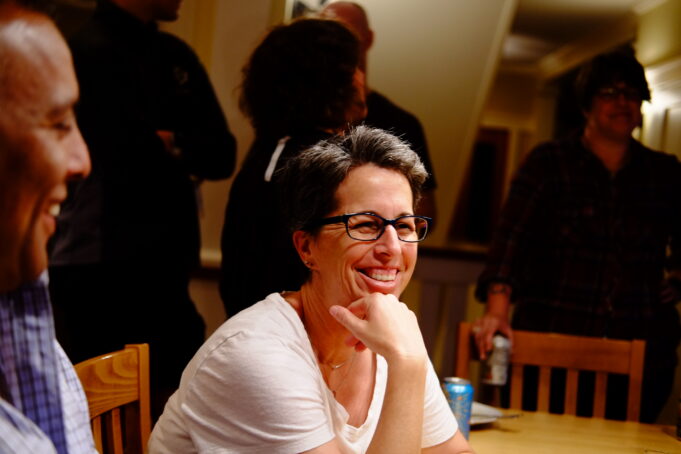
I discovered Balaji Srinivasan last march. He was on Tim Ferris’ podcast. He’s a biochemist by training and a serial entrepreneur most recently with Coinbase. I was struck by the parallels between what he was talking about and our project at Sol: proof of work, communities of practice, financial incentives for work shared in public, increasing access to education globally outside the traditional academy.
Since then I’ve listened to a few more interviews and read a few pieces of his at 1729.com.
Like many I’m struck by his broad understanding of the forces that have shaped human history and his willingness to synthesize them with the currrent moment and act on them with an entreprenuer’s risk-tolerance.
I am concerned with his insistence on setting himself up in contrast to “Woke Capital” or techno-progressivists vs. political progressivists.
He’s an open transhumanist ideologue and brings with him all the reductionism and myopia of that movement when it comes to their conception of personhood, people with disabilities and Cartesian error of mistaking the thinking thing for the whole thing. But what I find compelling at the heart of his vision is the impulse to reform our most central social institutions.
I share the impulse to reform and the conviction that many times current forms are not capable of the kind of change needed in this time of accellerating social changes and existential threats.
America’s current foundering in the midst of the pandemic despite having access to more vaccine than any other nation is proof enough to me that our current institutions are not set up to face exponential threats of climate change, and the epistemic crisis that underlies it.
And on that point of how we know what we know, his focus on the pursuit of “truth” as facts is particularly interesting. The simplicity with which he speaks of truth strikes me as something that could only come from someone whose academic training was in the sciences not the humanities.
But I suspect he is aware of this and has rejected the post-modern critique as part of the “Woke” ideology he finds so frustratingly censorious.
He speaks openly of his intent to persuade and influence. He speaks of media narratives as “software” that can be loaded into people’s brains. He advises caution against spending time with people whose imaginations have been formed by a steady diet of cable news because they will load their software into your mind. And yet I hear in his speaking and writing an equal intent to merge new code into the minds of his audience. He speaks in long narrative soliloqies punctuated by pithy aphorisms and tweetable slogans that seem designed to spread as memes.
He embodies the writings of Daniel Kanneman who, in documenting the cognitive biases all human minds work within, warns and prescribes of the ways our minds are so easily manipulated to take in new beliefs by recency, repetition and confirmation bias.
Srinivasan strikes me as one of the first people I’ve found speaking publicly who is living in the reality that I started to see dimly a decade ago: that we are living in a Gutenberg moment in which our technological innovations are having an exponential impact on our social, cultural, religious and political institutions, the impact of which has barely begun.
40 years after the printing press we saw the Christian Reformation and the complete social and political upheaval of Europe in the years that followed it. We are about 20 years into the internet as a broadly accessible phenomenon.
It seems clear to me that by mearely increasing the speed of the spread of ideas (of the network throughput), we unwittingly knock over the stability of the institutions built to manage a society capable of listening, talking and changing at that prior speed.
For the people who see the moment for what it is, one of profound transition, the future is most maleable. I got into tech and design because I saw this wave swelling and I wanted, I wanted to have a hand in shaping our shared future with an eye for how it could improve things for those with the least power and privilege in our current order.
I am as impressed with Balaji’s perception of this moment and commitment to seize it as I am concerned about the vision of the future he wants to help shape.






